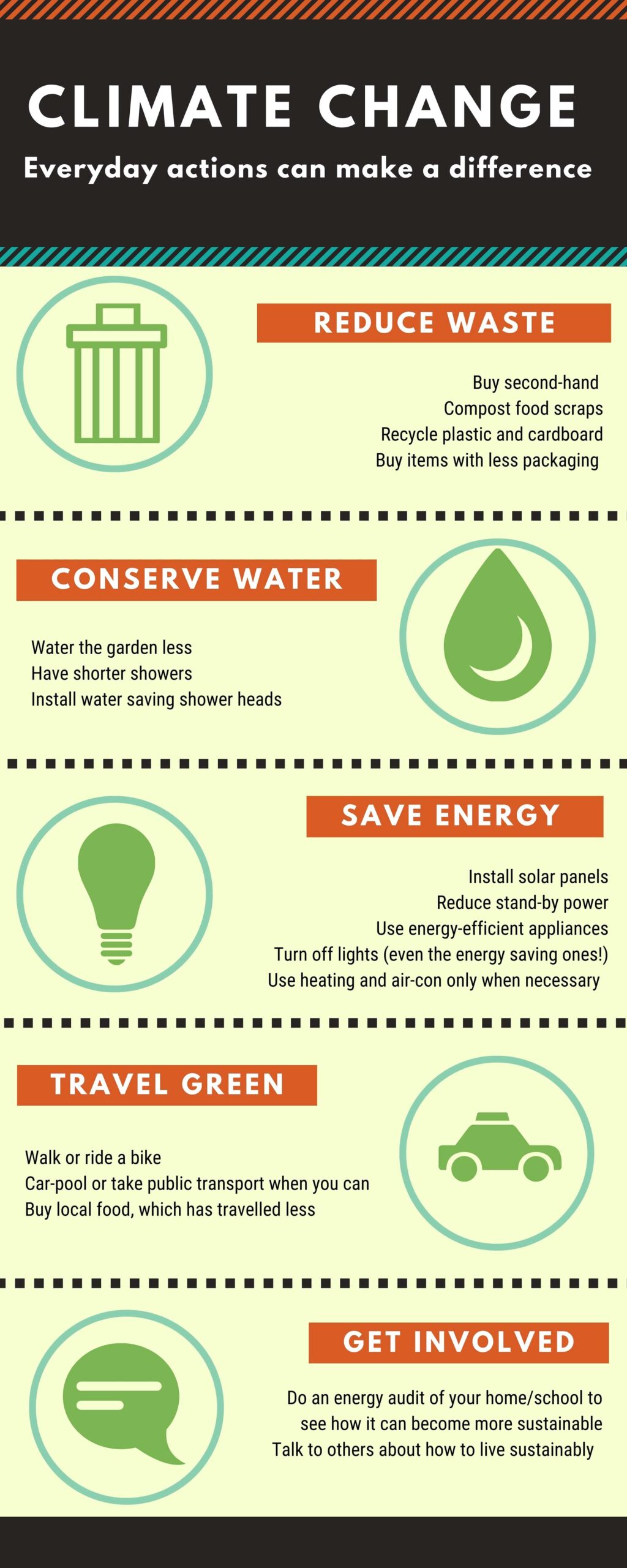While many climate change impacts are unavoidable given the amount of greenhouse gasesA gas in the atmosphere (such as carbon dioxide, methane and More already in the atmosphere, reducing emissions today will minimise the impacts of climate change for future generations.
Around the home you can:
- ensure appliances are energy efficient (the more stars the better)
- reduce stand-by power (keep appliances that need constant power connected to one plug, and anything else to another that you can switch off at the wall)
- remove one globe from multi-globe fittings, and turn off all lights when not in use
- put on a jumper and turn down your thermostat
- reduce shower time, install a water-efficient showerhead, and fix dripping taps
- consider installing solar panels.
- compost unused food – up to half the waste in garbage bins is food, which produces greenhouse gasesA gas in the atmosphere (such as carbon dioxide, methane and More if sent to landfill.
When shopping you can:
- buy clothes from op-shops so there are no new greenhouse emissions from manufacturing, and repair rather than replace damaged clothing
- buy local food, as it generates fewer travel-related emissions
- buy less processed food
- avoid excessive packaging
- don’t buy unnecessary items; make a shopping list.
At school you can:
- keep doors and windows closed when heaters are running
- plant trees, which absorb carbon dioxide from the air
- ensure you use recycling bins
- establish a food composting system
- set up an environment committee and undertake a school energy audit
- walk, ride your bike, or use public transport to get to school.
Increasing drought conditions means we also need to carefully manage our water resources (see Water section).



